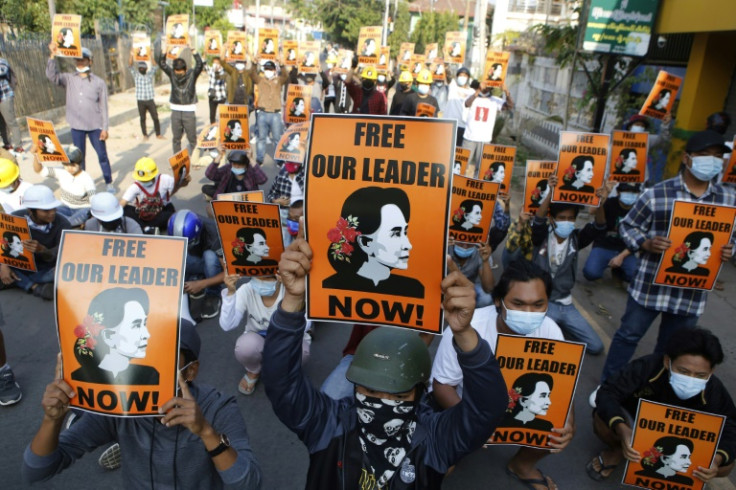Myanmar Junta Facing 'Existential Threat': UN Expert

Myanmar's junta is already facing an "existential threat" but the world could help end its "nightmare" rule with coordinated sanctions, the UN special rapporteur on the country said Wednesday.
Mass casualties among junta forces, as well as defections, surrenders, and recruitment challenges have led to dwindling troop numbers, posing "an existential threat for the Myanmar military", said Tom Andrews.
"Those who have bet on the junta to restore order and stability in Myanmar have made a losing bet," he said.
The junta came to power in the February 2021 coup that ousted Aung San Suu Kyi's democratically elected government, ending a 10-year experiment with democracy and plunging the Southeast Asian nation into bloody turmoil.
The junta is struggling to crush resistance to its rule by long-established ethnic rebel groups and newer pro-democracy People's Defence Forces.
"The junta is the principal driver of violence, instability, economic decline, and lawlessness in the country," Andrews said.
The former US congressman is the special rapporteur on the situation of human rights in Myanmar.
Special rapporteurs are mandated by the UN Human Rights Council but are independent experts who do not speak for the United Nations.
Andrews said sanctions -- restrictions on financial flows and on equipment for military use -- were disrupting the junta's operations.
He cited Singapore, which has clamped down on sales of equipment for military use, and such transfers fell by 83 percent last year, Andrews told a press conference in Geneva.
But he stressed that this was not the case for Russia and China, respectively the first and second suppliers of arms to the junta.
However, Andrews said, more could be done to stifle the junta financially.
"We need to have a fundamental change in how we're applying the sanctions. We've got to do it in a coordinated, focused way," he said.
Andrews is investigating banking and financial relations between the junta and the rest of the world and hopes to publish a report on the subject later this year.
He also warned of lacking global focus on Myanmar's fate as the world concentrates on other conflicts.
"The junta are like mushrooms: they thrive in the dark," he said.
"What is important is to lay the ground for a democratic, human rights-respecting Myanmar.
"We need as an international community to do much more to support the people inside the country, but if we do... we could be very close to ending this nightmare."
© Copyright AFP 2024. All rights reserved.











